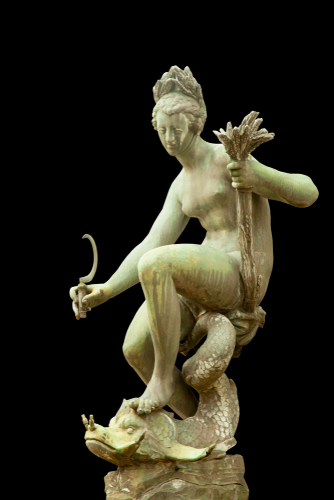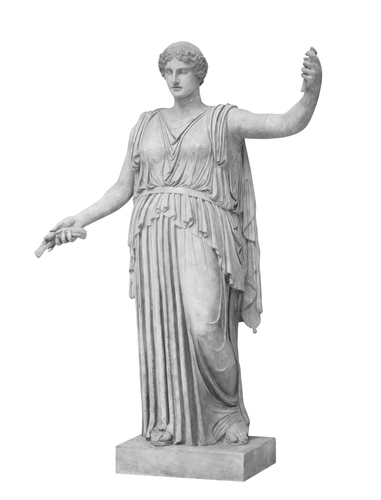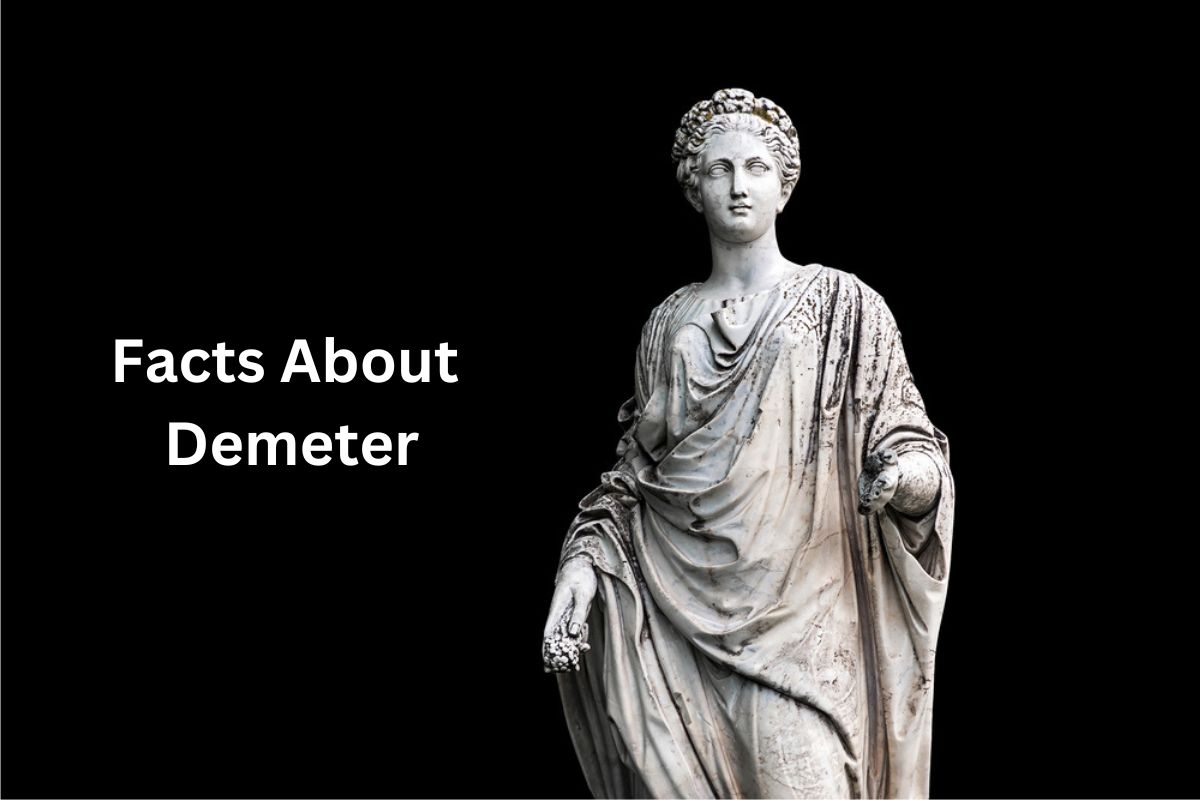Demeter, a prominent figure in Greek mythology, holds a significant role as the goddess of agriculture, fertility, and the harvest. As the daughter of Cronus and Rhea, she is one of the Olympian gods and goddesses.
Demeter’s influence is closely tied to the cultivation of crops and the prosperity of the Earth. Her mythological narratives, such as the abduction of her daughter Persephone and the creation of the seasons, highlight her power and impact on the natural world.
Farmers sought her blessings for successful harvests, and her motherly and protective nature earned her reverence among the ancient Greeks.
Demeter’s association with agriculture and her maternal qualities make her an enduring and essential deity in Greek mythology.
Demeter Facts
1. Greek goddess of agriculture, fertility, and the harvest
Demeter is a significant goddess in Greek mythology who holds dominion over agriculture, fertility, and the harvest.
Also Read: Facts About Aphrodite
She played a vital role in the lives of ancient Greeks, as their society heavily relied on agriculture for sustenance and survival.

2. Daughter of Cronus and Rhea
Demeter is the daughter of Cronus and Rhea, making her a member of the Olympian gods and goddesses.
Also Read: Athena Facts
Her siblings include Zeus, Poseidon, Hades, Hera, and Hestia. Being part of this divine family elevated her status and influence among the gods.
3. Associated with the cultivation of crops and the fertility of the Earth
Demeter’s primary domain is agriculture, and she is revered as the goddess who oversees the growth of crops and the fertility of the Earth.
Ancient Greeks believed that Demeter blessed the land with abundance and ensured the successful cultivation of crops. They recognized her as the one responsible for the fertile fields, prosperous harvests, and the general well-being of the agricultural sector.
Farmers and agricultural communities held Demeter in high regard, attributing their successes and failures in agriculture to her blessings or curses.
They sought her favor through prayers, rituals, and offerings to ensure favorable weather conditions, fertile soil, and bountiful harvests. The Greeks saw Demeter as an essential deity who sustained their livelihoods and provided for their basic needs.
Demeter’s association with agriculture also extended to the well-being of livestock and the growth of forests. She was seen as a nurturing figure who cared for the entire ecosystem and ensured the harmonious coexistence of humans, animals, and nature.
4. Mother of Persephone, who was abducted by Hades
One of the most famous myths involving Demeter is the abduction of her daughter, Persephone, by Hades, the god of the underworld. According to the myth, Hades fell in love with Persephone and abducted her to be his queen in the realm of the dead.
Demeter, devastated by the loss of her daughter, withdrew her blessings from the Earth, causing it to become barren.

5. Responsible for the creation of the seasons
Demeter’s grief and withdrawal from her duties as the goddess of agriculture had a profound impact on the Earth. During the months that Persephone spent in the underworld, the land became barren and devoid of life. This period was known as winter.
When Persephone was allowed to return to her mother for part of the year, Demeter’s joy would bring the rebirth of nature and the arrival of spring and summer. This myth explained the cyclical nature of the seasons in Greek mythology.
6. Often depicted holding sheaves of wheat or corn
Demeter is often depicted in Greek art and sculpture holding sheaves of wheat or corn, symbolizing her connection to agriculture and the harvest. These symbols represent the abundance and sustenance she brings to the world.
Additionally, Demeter is often shown wearing a wreath made of ears of grain on her head, further emphasizing her role as the goddess of agriculture and fertility. These visual representations served as reminders of her influence over the growth of crops and the Earth’s fertility.
7. Symbolized by a wreath made of ears of grain
This distinctive symbol serves as a visual representation of her connection to the abundance of the harvest and the vitality of crops. The wreath typically consists of intertwined stalks of wheat or other grain crops, forming a circular crown that adorns Demeter’s head.
The wreath of grain represents the vital role that Demeter plays in ensuring the growth and abundance of crops. It serves as a reminder of her power to bless the land with fertility and nourishment.
Additionally, the wreath carries symbolic connotations of sustenance, prosperity, and the cycle of life and death. It emphasizes the significance of agriculture in ancient Greek society and Demeter’s vital role in providing food and sustenance to humanity.
8. Honored through festivals called the Eleusinian Mysteries.
Demeter was honored through the celebration of festivals called the Eleusinian Mysteries. These rituals were held in the city of Eleusis, near Athens, and were considered highly sacred.
The exact details of the mysteries were kept secret, known only to those who had been initiated into the cult. The Eleusinian Mysteries were dedicated to Demeter and her daughter Persephone and were believed to offer initiates a glimpse into the afterlife and the promise of eternal life.
9. Farmers and agriculturists sought her blessings for a successful harvest
Farmers and those involved in agriculture sought Demeter’s blessings for a successful harvest. They would offer prayers, sacrifices, and ceremonies to honor her.
During planting and harvest seasons, dedicated festivals and rituals were held to invoke her favor and ensure the fertility of the land. These ceremonies often included the presentation of offerings such as grains, fruits, and animals as tokens of gratitude and requests for a bountiful harvest.
10. Also regarded as a motherly figure and protector of children
Demeter was not only seen as a goddess of agriculture but also as a maternal figure. She was known for her kindness, compassion, and protective nature.
In the myth of the abduction of Persephone, Demeter’s grief and longing for her daughter exemplify her maternal instincts and deep love for her child. This aspect of Demeter’s character made her relatable to mortals, as she embodied the nurturing qualities of a mother.
In addition to her role in agriculture and motherhood, Demeter was regarded as a protector of children. She was often invoked to ensure the well-being and safety of young ones. Demeter’s caring nature extended to the next generation, and her influence was sought to shield children from harm, illness, and adversity. This aspect of her divine persona added to her widespread worship and the reverence shown to her by parents and caregivers.
